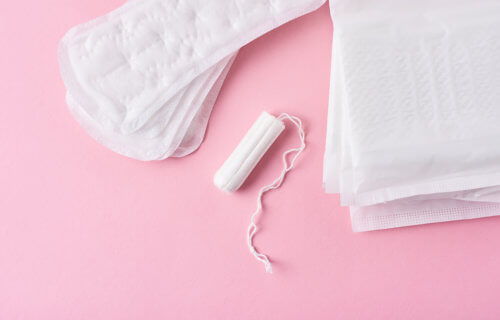NEW YORK — Seven in 10 women say they set aside money in their budget just to afford feminine hygiene products. A survey of 2,000 American women finds that although respondents reserve an average of $30 per month for sanitary pads, tampons, and other related products, 47 percent “always” or “often” go over budget.
Women in the Northeast reported having the hardest time affording feminine hygiene products, with 82 percent having to set aside extra money. Members of the arts and entertainment industry were most likely to struggle with paying for these products (95%), while 78 percent of education professionals echoed this sentiment.
Should feminine hygiene products be free?
Conducted on behalf of Premom by OnePoll, the survey also finds that 73 percent believe these essential items should be accessible at all costs. Respondents think feminine hygiene products should especially be free of cost in high schools (39%), medical facilities (38%), and public restrooms (35%).
Another issue women face is lack of accessibility, with 46 percent saying they have trouble finding feminine hygiene products in stores. Half of women in the Southeast say their local convenience store doesn’t always carry these products, while just over half in the Northeast say finding these products in department stores and pharmacies can be difficult.
On average, women have to travel around six miles to secure the feminine hygiene products they need, and 83 percent stock up while they’re at the store to avoid another trip back. That may be why seven in 10 always have feminine hygiene products at the ready, regardless of whether or not they need any themselves.
“Our results show that most women believe that access to affordable menstrual products is a basic necessity. With today’s technological advancements in FemTech, women have the ability to better understand their menstrual cycle patterns so they could be more empowered taking care of their health,” says Sherry Liu, founder and CEO for Premom, in a statement. “Educating women on the importance of tracking their cycles and consistently committing to do so can help adequately prepare them for fertility health care even with limited access to resources.”
Who should get the bill?
More than two-thirds think it’s unfair that they have to pay for feminine hygiene products.
About half of all respondents believe federal and state governments should be responsible for providing free feminine hygiene products, with 45 percent saying the onus should be on doctors’ offices, hospitals, and health clinics. Nearly two-thirds believe that feminine hygiene products should be covered by health insurance.
“Period equity isn’t only financial. As a physician, I have significant concerns about related health issues, as attempting to use unapproved alternatives or extend the life of period products can potentially cause serious infections,” says Dr. Patti Haebe, Chief Medical Advisor for Premom.

I believe women should pay for my cialis, viagra, jock straps, condoms, etc. It is important for my health. By the way, my testosterone has dropped, please pay for my weekly shots at the doctors office that I must drive to and wait for. You can not take them as a pill. None of these are covered by insurance. It is only fair you pay for them! Obviously, until we become a socialist country with socialised medicine where we all will end up receiving less and less care dictated by bureaucrats who will ration care, such a system will not exist and such statements are ridiculous. Pay for your own hygienic products.
I’m totally good with paying for my own tampons (because nothing but the best for my Vag) but you use penis pills as a comparison? You CHOOSE to have sex with your limp penis. We don’t choose to bleed every month.
Two thousand women on the whole is a small sample size so you can’t put much stock in this ‘study’. We can’t expect the government and/or medical facilities to pay for EVERYTHING. Invest in reusable pads/menstrual cups if purchasing disposables is a problem financially.